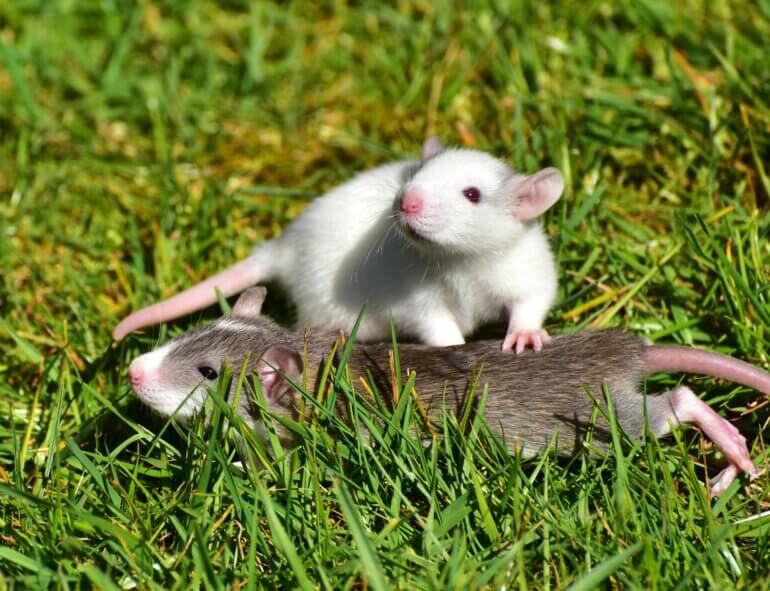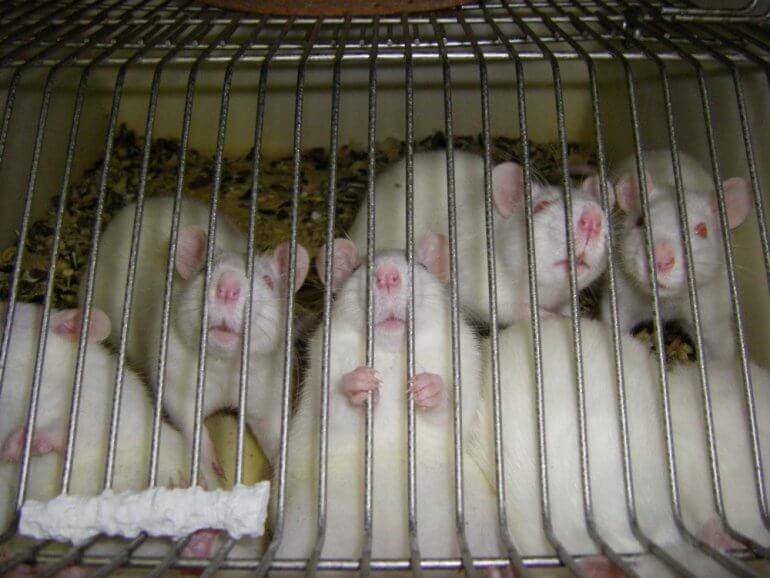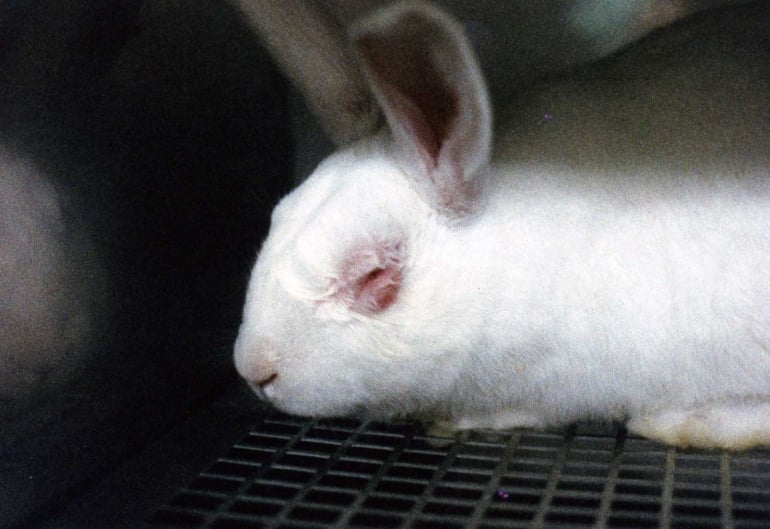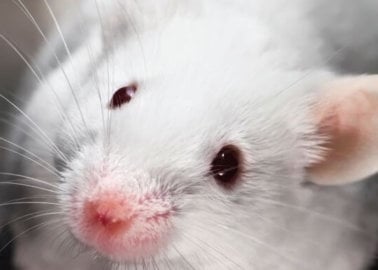Progress! European Chemicals Agency Commits to Ending Tests on Animals
Progress for animals in EU laboratories! In what can only be the start of a new era, the European Chemicals Agency (ECHA) and the European Commission have announced steps to end archaic and painful animal tests for industrial chemicals.
PETA UK and PETA Germany scientists Dr Julia Baines and Dr Tina Stibbe heard this news first-hand at the European Partnership for Alternative Approaches to Animal Testing annual conference “Accelerating the Transition to Animal-Free, Sustainable Innovation”. European Commission Deputy Director-General for the Environment Joanna Drake announced that the Commission and ECHA are “committed to developing a European roadmap towards the full replacement of animal testing under the chemicals legislation”.
ECHA Is Listening
In the announcement, Drake noted that the Commission is fully aware of ongoing pressure from the European Parliament resolution on plans and actions to accelerate the transition to innovation without the use of animals in research, regulatory testing, and education and the “Save Cruelty Free Cosmetics” European citizens’ initiative (ECI), calling for a plan to end animal testing.
This long-overdue change follows the result of years of campaigning by PETA entities – and it’s heartening that on the heels of the ECI signed by over 1.4 million EU citizens (subject to verification), ECHA and the Commission are finally taking action.
Poisoned, Burned, and Killed – Animals Suffer in EU Laboratories
From the paint on your walls to the compounds used to make your mobile phone, dozens of items contain chemicals that were tested on animals.
Sensitive animals in laboratories are not given names. They are known just by a number, but each one is an individual who can feel pain, fear, and loneliness.
A tube may be placed down a mouse’s throat so that a chemical used in motor oil can be pumped straight into their stomachs. Afterwards, they will be killed and their organs dissected. Mice may endure seizures, internal bleeding, or organ damage and even die during the experiment. None of them will experience life outside the laboratory.
Female rats may be force-fed a test substance every day throughout their pregnancy. The day before they are due to give birth, she and her unborn babies will be killed and dissected.
Experimenters may shave a patch of fur from a rabbit’s back and apply a chemical directly onto their sensitive skin in an attempt to see the severity of the reaction. After this agonising test is over, they will be killed.
There Are Better Ways to Test Chemicals
Non-animal methods can be more effective and relevant for predicting potential adverse effects on human health and the environment.
Sophisticated tests using human cells and tissues, together with advanced computer modelling and data analysis, often take less time and money to complete than animal tests.
We hope the next step will be the adoption of a roadmap for the future of science put together by PETA scientists in various disciplines, known as the Research Modernisation Deal, which is a framework for replacing outdated tests on animals with state-of-the-art, non-animal research methods. We will be in touch with ECHA and the Commission soon to discuss this important development, which will save countless lives – of humans and other animals.
What You Can Do
When we speak out, we evoke positive change in the world. PETA UK will continue to campaign against experiments on animals in the EU and the UK. Add your name to our petition urging the government to end all experiments on animals and keep up to date with ECHA’s progress by subscribing to our e-news:








